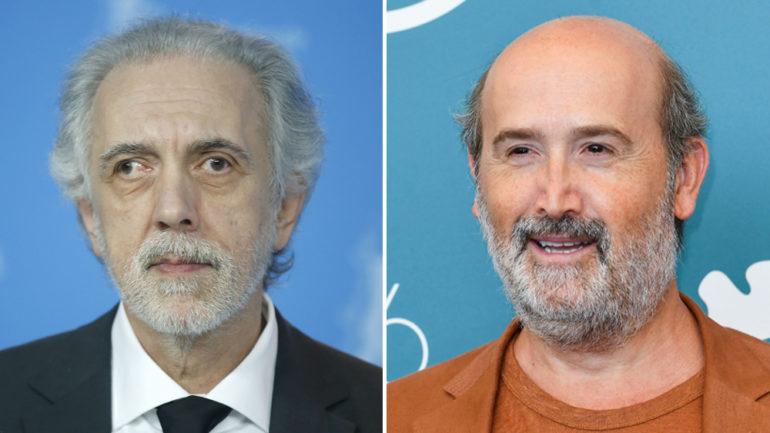Caracol Television Introduces Fernando Trueba’s ‘El Olvido Que Seremos’ (EXCLUSIVE)
By John Hopewell
LOS ANGELES (Variety.com) – BUENOS AIRES — Caracol Televisión is introducing to select sales agents at Ventana Sur “El Olvido que Seremos,” the latest feature film from Academy Award-winning director Fernando Trueba (“Belle Epoque”), which is written by David Trueba (“Living Is Easy with Eyes Closed”) and stars Javier Cámara (“Truman”) and adapts one of the most loved of recent Spanish-language books.
Now in post-production and ready for delivery and potential festival berths in 2020, said a Caracol source, “El Olvido que Seremos” is being introduced to select sales agents at .
Produced by Dago García Producciones for Caracol TV, which fully funded the feature, “El Olvido que Seremos” shot this year in Medellín, Bogotá, Milán and Madrid. It marks the latest ambitious feature film from the Caracol Television, the Colombian broadcast group whose films in a bold line of big international auteur titles take in Ciro Guerra’s Oscar-nominated “Embrace of the Serpent” and Cannes Directors’ Fortnight hit “Birds of Passage” as well as Alejandro Landes’ “Monos,” a Sundance World Cinema Dramatic Special Jury Award winner.
“At Caracol, from a few years ago, we have made a determined and consistent bet on quality cinema. The result has been films like ‘Embrace of the Serpent,’ ‘Birds of Passage,’ and ‘Monos’” said Caracol TV president Gonzalo Córdoba.
“With “El olvido que seremos,’ we initiated the challenge of adapting to film one of the most important works of Spanish-language literature, and did so with Oscar-winning and the brilliant actor Javier Cámara, the best of Colombian talent, and our experience in production. The result has left us with a film that is endearing, at once intimate and universal.”
“El olvido que seremos” (literally, something like “Forgotten We’ll Be,” a paraphrase of Jorge Luis Borges) is based on the cult true-facts recording novel of the same title by Hector Abad Facciolince, published in 2006, and hailed by Mario Vargas Llosa as the “most passionate reading experience of my last years.”
Translated to multiple languages, and one of Colombia’s most revered laments of its mortal violence, and history written with filial love it records the author’s happy childhood with his doctor father, Héctor Abad Gómez; his return from education abroad to Medellín to discover his father plunging into social work; his sister’s death from illness which just deepened his father’s desire to help others and raised the ire of paramilitary groups; the murders of the who raised their voices against the paramilitary; his father putting himself forward as a future mayor of Medellín; his assassination.
The book has sold 300,000 copies worldwide.
“El olvido que seremos” is the book that I’ve bought most in my life,” Trueba told Variety. “I’ve given it as a present to my wife, Cris, to my mother, to some of my brothers and – in English, French and Portuguese – to friends in other countries.”
“Producers normally offer me projects I’m not interested in or books I don’t like,” he added. “When I was offered ‘El olvido,’ I felt very flattered, I told them that, said what I’ve just mentioned. But I also said: it couldn’t be turned into a film. I’m sorry.’”
“And here you have me: Mixing!” Trueba added.
The film adds a new chapter to the career of a director who, from his very origins, has had one of the most international of careers of any filmmaker in Spain – out of a sense of joy for cinema and literature from over the world, including his native Spain where he enrolled Rafael Azcona, the embodiment of the greatest tradition in Spanish comedy, as a co-screenwriter on multiple films.
Trueba’s early films, from his 1979 feature debut “Opera Prima” onwards, translated the tropes and joie de vivre of classic Hollywood comedy to Madrid.
1992’s “Belle Epoque” channeled France’s Jean Renoir; Trueba’s love of jazz, other music snd adaptations of foreign novels have taken him to shoot in Paris (1989’s “The Mad Monkey,” with Jeff Goldblum), Miami (1994’s “Two Much,” with Antonio Banderas), New Jersey, where “Calle 54” (2000) begins; Salvador, Bahía, Brazil (“El Milagro de Candeal,” 2004) and Chile (“The Dancer and the Thief,” 2009).

